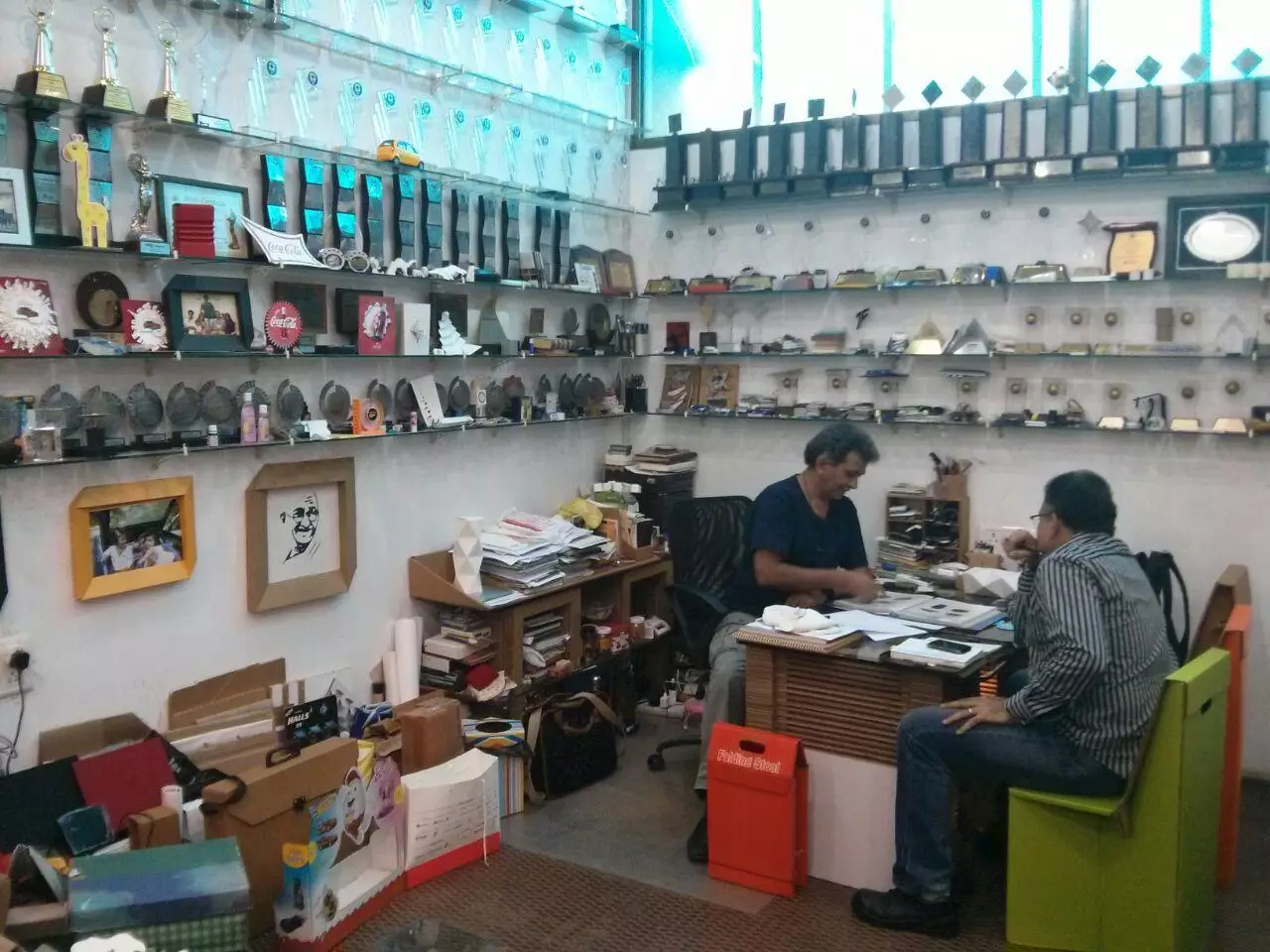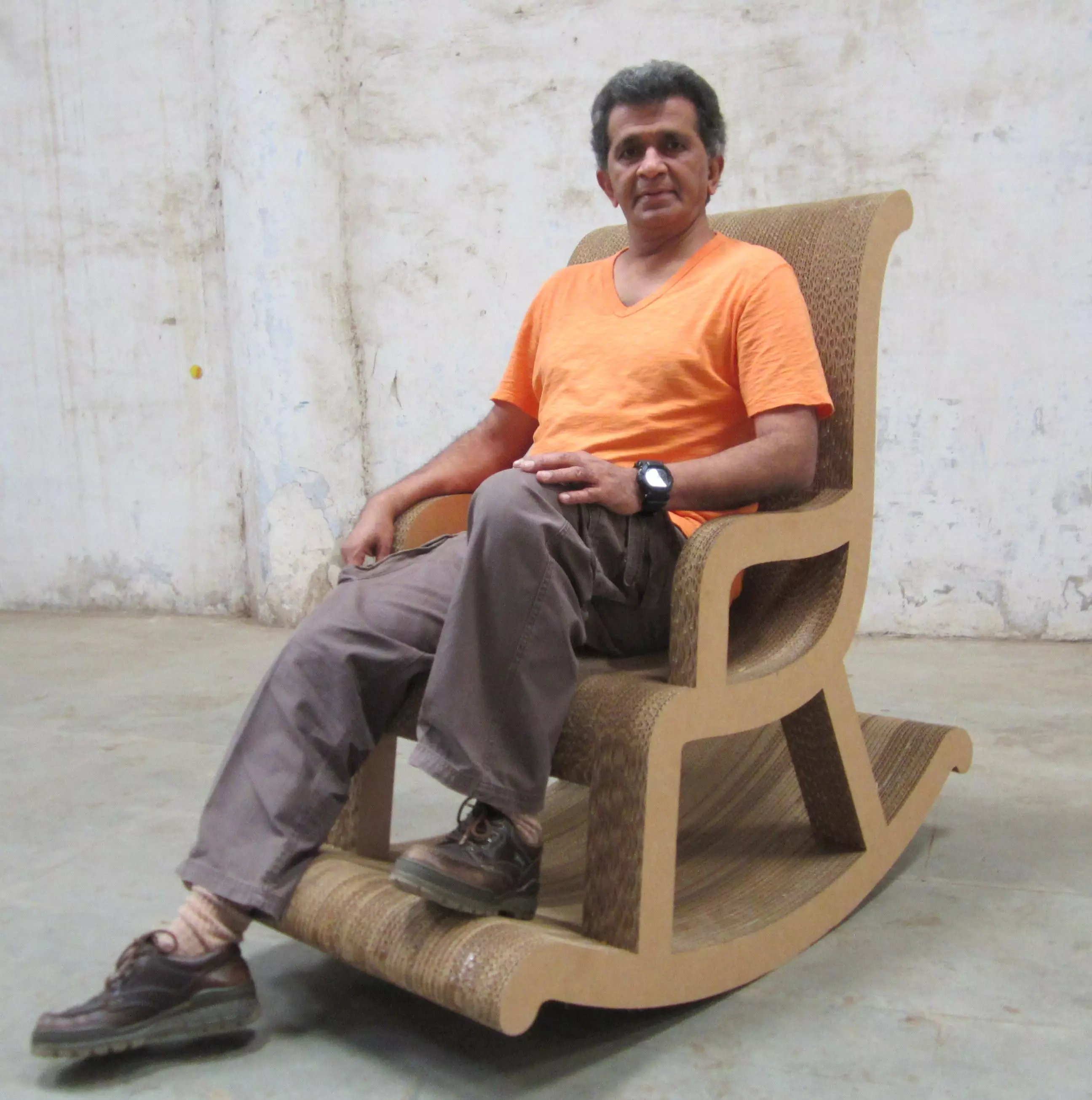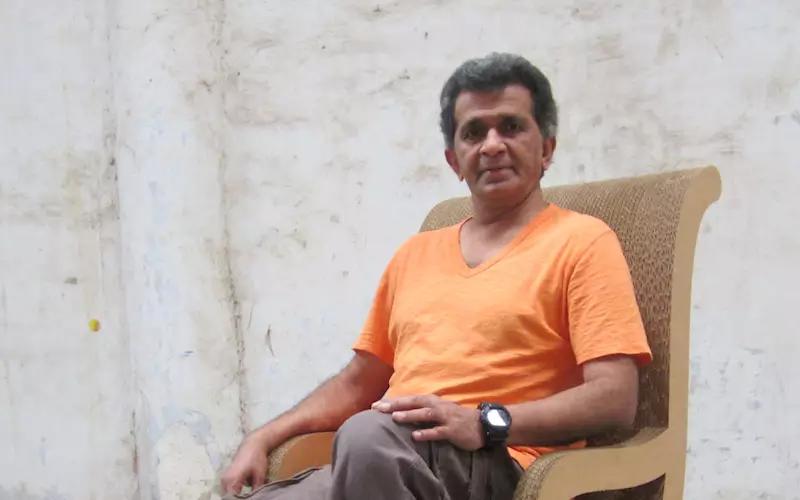Corrugation. Version 6.1. ... Cradles, Cupboards and Coffins
Haresh Mehta, creator or converter, packaging player or interior designer, or a box manufacturer.
22 Oct 2014 | By PrintWeek India
Known for his sumptuous rocking chairs and lamps, Mehta found fame making corrugation "sexy" and his designs have been celebrated by the biggest brands, plus international packaging awards.
Like many entrepreneurs in India, Haresh Mehta is college drop-out. He joined the family business of box manufacturing. While all his cousins were gorging account books and trying to grow the cardboard box business, Mehta sat on his desk and drew inspiration from corrugated boards.
Corrugated boards percolates in each and every corpuscle in his blood. With design in his DNA, he forayed into box making at home. Soon enough, he realised he was a man of the packaging world. It was the eighties, and Jayna Packaging was born.
Thanks to work, he trudged across the seas. Once, he came across dispensers and corrugated displays being deployed by the retail giants. His instinct told him this concept would "work well in India". That is when he decided to foray into corrugated displays. To sell displays he built a new mindset. This was because there was lack of awareness, limited knowledge and zero communication about the strengths of corrugation. He embarked on a mission to make corrugated boards, chic.
Jayna gave brands the confidence that Indian print firms are getting better at designing and printing. That the linkage between new innovations and profits is stronger than ever before. And the intellectual print-capital (by stressing on print R&D, print strategy, print development) can create top notch work.
In the past few years, the lesson that PrintWeek India has learnt from Jayna is, there is always a scramble of producing the next big print blockbuster.
Mehta says, in his corrugated office, "Print is no longer a cosy business. With a cornucopia of technologies and strategies available, it has become front-line."

From cradle to coffin
He has a bold new vision in 2014. From cradles to coffins; with a few chairs and cupboards thrown in. All corrugated.
All it requires is concept selling.
It requires convincing the Church clerics and the municipality authority.
It is a new battle.
Of all the assumptions we make in this age of apps and startup disruptions, creativity in traditional forms is dead.
But Jayna is working on green burials with coffins that are eco-costly and eco-green.
“What problem is corrugated coffins going to solve?” Mehta says, "It would avoid trees being felled. Also with corrugated boards, the burial would cost just a fraction of the conventional send-off.
In that sense, a green burial is perfect way for a person to exit Planet Earth.

Jayna has contacted 30+ undertakers in Mumbai to offer service for the burial sites in the city. Jayna offers different models of cardboard coffins, and overnight delivery. The firm is trying to sort out regulations that govern burial sites. The main concern is: When should graves be dug up? And how long is it deemed acceptable for the occupants to have been left to rest in peace.
Corrugation is chic
The thing about Haresh Mehta and his design formulations is, it has taken its cues from ordinary day to day objects around us. The corrugated chair was crafted on a Kongsberg table but the beauty was the manner in which the patterns were retained — and in a functional way it was safe and secure to rock in.

Thankfully, some brands are convinced, and they do use corrugated material as displays. Initially, since it was an uncharted path, Jayna used to manufacture 50 units and work on a cost to cost basis; and at times, as Mehta ruefully mentions, at a loss.
But the mad idea was to create awareness in the market. The strategy has worked. Jayna has some of the leading brands in their kitty. Key accounts which can be spotted in the showroom adjoining Mehta's office are: Unilever, P&G, Cadbury, Coca-Cola, etc.
The work is produced in a 10,000 sq/ft production facility in the centre of Kurla. What started with a single punching machine has seen additions of much more including an Esko. The team size has grown from three to 40 members plus six in-house designers.
Jayna has more than 200 awards to his credit in the field of packaging design and display solutions in POP. Mehta informs, "Jayna Packaging will be launching its wide range of sustainable, sophisticated, and affordable style of products made from corrugated board under the brandname of Paper Shapers.

As we leave the Jayna plant, we realise Mehta is a rare talent in an industry which is driven by money and merchandising. Besides making corrugation look pretty, he has also given shape to "shapes" in a nation.












 See All
See All